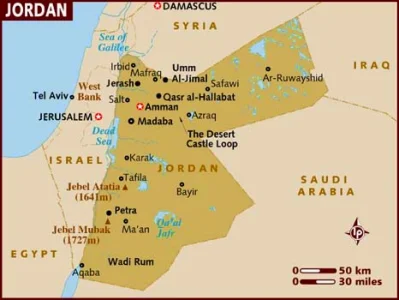The crude oil spill in the Arava Desert, southern Israel, is 'twice as bad as initially estimated,' according to the Israeli Eilat Ashkelon Pipeline Company....
"The volume of crude oil that spilled into the Arava Desert last week is 60 percent larger than the amount that was originally reported, the company responsible for the pipeline acknowledged on Sunday night," Haaretz, the Israeli news agency reported.
Although the Eilat Ashkelon Pipeline Company (EAPC) initially reported of a spill between one million and 1.5 million liters, it later revised its calculation to three million liters. However, the company reported on Sunday a report issued by the company on Sunday has revealed that some five million liters of crude oil spilled out of the pipeline last Thursday, December 4.
"We were skeptical about the figures provided by the company from the start," a ministry official said on December 8, as cited by Haaretz.
Meanwhile damage control teams have already removed 13,000 tons of polluted soil in order to reduce the impact of the pipeline leak.
The Times of Israel notes that according to weather forecasts heavy rainfall is expected in the region later this week. It has sparked concerns among ministry officials over the possibility of further contamination of the area, including the Gulf of Eilat, home to rare coral reefs, which could be damaged by the leak, the media outlet stresses.
Haaretz notes, however, that dams are being erected in order to prevent the oil flowing into this area.
"It's the biggest ecological disaster Israel has seen. This is because of the material itself, crude oil, which is particularly hard to flush out, and the location of the spill [on the reserve]," Gilad Golub of Israel's Environmental Services Company told Agence France Presse.
The Times of Israel notes that Eilat residents have already filed a lawsuit against the pipeline operators referring to the tremendous environmental damage caused through negligence.
"Mellish is demanding NIS 220 million ($55m) to rehabilitate the environment in coordination with the Environment Minster and the Israel Nature and Parks authority, as well as another NIS 180 million ($45m) for the 48,000 residents of Eilat for damage to their health and discomfort caused by the ecological disaster," the media outlet reports.
More than 80 people on both sides of the Israel-Jordan border have complained about health problems caused by the spill.
[sputniknews.com]
8/12/14
--
-
Related:
"The volume of crude oil that spilled into the Arava Desert last week is 60 percent larger than the amount that was originally reported, the company responsible for the pipeline acknowledged on Sunday night," Haaretz, the Israeli news agency reported.
Although the Eilat Ashkelon Pipeline Company (EAPC) initially reported of a spill between one million and 1.5 million liters, it later revised its calculation to three million liters. However, the company reported on Sunday a report issued by the company on Sunday has revealed that some five million liters of crude oil spilled out of the pipeline last Thursday, December 4.
"We were skeptical about the figures provided by the company from the start," a ministry official said on December 8, as cited by Haaretz.
Meanwhile damage control teams have already removed 13,000 tons of polluted soil in order to reduce the impact of the pipeline leak.
The Times of Israel notes that according to weather forecasts heavy rainfall is expected in the region later this week. It has sparked concerns among ministry officials over the possibility of further contamination of the area, including the Gulf of Eilat, home to rare coral reefs, which could be damaged by the leak, the media outlet stresses.
Haaretz notes, however, that dams are being erected in order to prevent the oil flowing into this area.
"It's the biggest ecological disaster Israel has seen. This is because of the material itself, crude oil, which is particularly hard to flush out, and the location of the spill [on the reserve]," Gilad Golub of Israel's Environmental Services Company told Agence France Presse.
The Times of Israel notes that Eilat residents have already filed a lawsuit against the pipeline operators referring to the tremendous environmental damage caused through negligence.
"Mellish is demanding NIS 220 million ($55m) to rehabilitate the environment in coordination with the Environment Minster and the Israel Nature and Parks authority, as well as another NIS 180 million ($45m) for the 48,000 residents of Eilat for damage to their health and discomfort caused by the ecological disaster," the media outlet reports.
More than 80 people on both sides of the Israel-Jordan border have complained about health problems caused by the spill.
[sputniknews.com]
8/12/14
--
-
Related:








 GR
GR FR
FR DE
DE ES
ES IT
IT RU
RU EU
EU